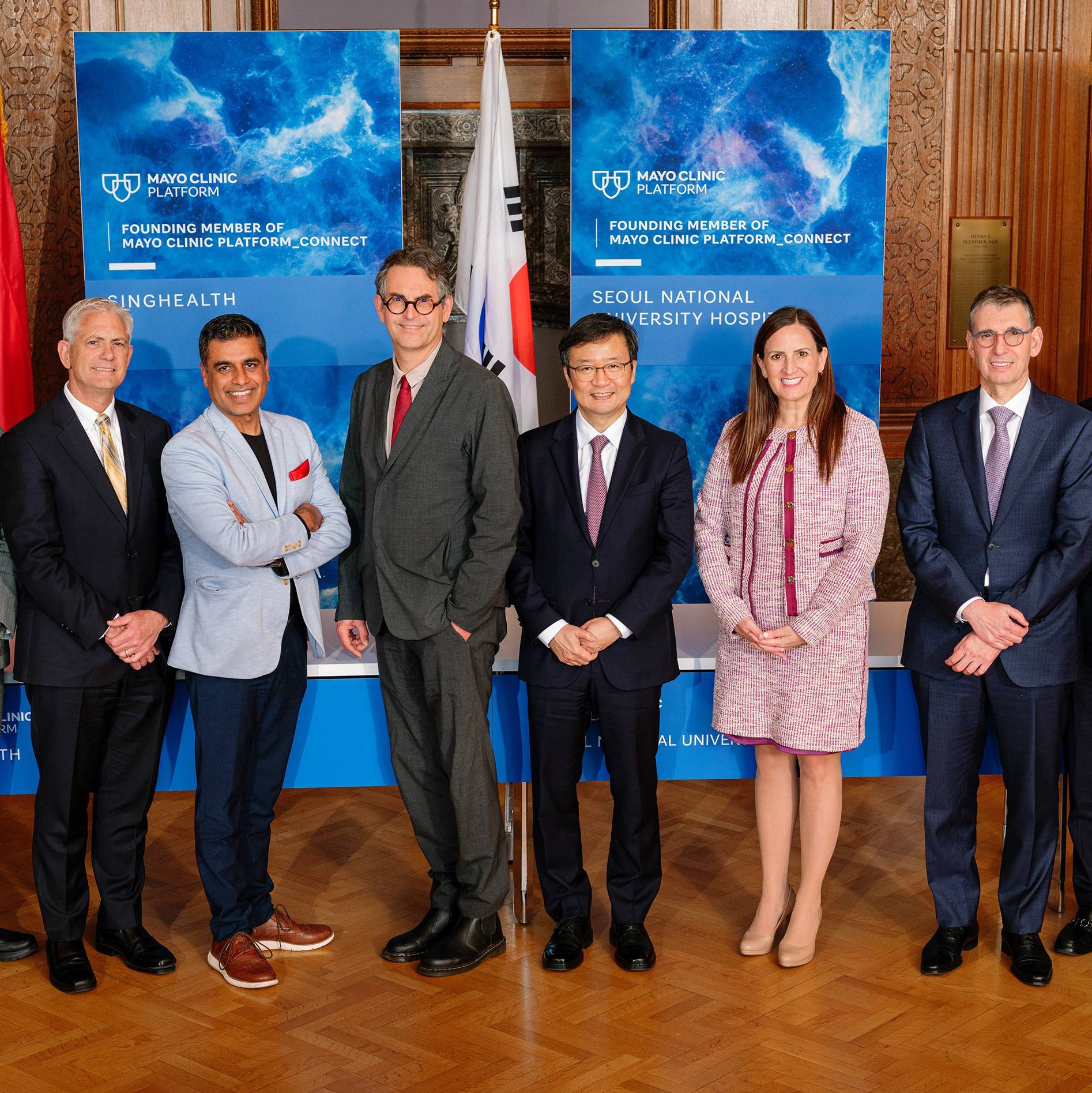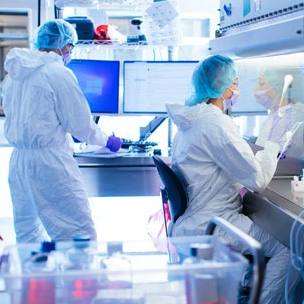-
Research
Expanding regenerative biotherapeutics to new practice areas
As a physician at the forefront of new cancer therapies, Yi Lin, M.D., Ph.D., understands the highs and lows that patients experience. Will the latest technologies slow or stop disease? If not, is this the last, best option?
Dr. Lin, a hematologist, sees the need for a new class of drugs that provides different treatment choices for patients with complex conditions, such as cancer. As the new associate medical director for Mayo Clinic's Center for Regenerative Biotherapeutics, she'll assist in delivering promising new therapies to the practice. Dr. Lin and the center's leadership will focus on accelerating biological therapies — medicines manufactured from human sources, such as cells, blood, tissue, proteins or genes. Biologics have shown potential for more targeted healing, sometimes with fewer side effects, than standard drugs.
Among her many roles at Mayo, Dr. Lin also is the medical director of the Immune Effector Cell Program in Rochester, Minnesota, and enterprise leader of Cancer Regenerative Biotherapeutics with the Mayo Clinic Comprehensive Cancer Center.
"The technology of manipulating a patient's own cells to better enable them to do what they're naturally capable of — fight disease — is very important," says Dr. Lin. "Cellular therapies show potential for more individualized treatment for patients. The first generation of such therapies are now standard of care, with a lot more research to fully realize their potential."
Dr. Lin launched the first chimeric antigen therapy (CAR-T) cell therapy clinical trial at Mayo Clinic and has led efforts to integrate it into the practice. CAR-T cell therapy is a regenerative immunotherapy that harnesses the body's defense system by genetically modifying cells, equipping them to go on search-and-destroy missions to kill cancer.
The Food and Drug Administration has approved six CAR-T products for blood cancers. Dr. Lin and leaders in the Center for Regenerative Biotherapeutics see the need for new CAR-T therapy options that also will kill solid tumors. The long-term goal is to apply regenerative technologies to cancer and many other conditions. Priorities include:
- Malignant cell therapies — such as CAR-T cell therapy.
- Nonmalignant cell therapies for conditions such as diabetes.
- Gene and viral therapies for treating conditions such as osteogenesis imperfecta, an inherited brittle bone disease.
- Exosomes and extracellular vesicles — exosomes act like a cargo service that delivers healing messages into damaged cells. Preclinical studies of exosomes have shown potential to regenerate skin and skeletal muscle.
- Tissue engineering & bioprinting. Examples would include printing nasal and larynx implants for restoring health after cancer.

Dr. Lin launched the first CAR-T cell therapy clinical trials at Mayo Clinic and has led efforts to integrate it into practice.
Connections between dance and cancer
Dance is a powerful nonverbal communication that connects the performers and audience in their shared human experience through diverse culture and history. Dr. Lin is a Chinese dancer, choreographer and former dance teacher who relates this artistic expression to patient care.
"I am drawn to how we can share and celebrate through dance the resilience of human nature through adversity," says Dr. Lin. "A cancer diagnosis is one of the most challenging times for patients and their loved ones. I am humbled to share this journey with them. Recent cancer innovations translate discoveries into the resilient nature of our immune system. I am privileged that my research and practice are aligned to help improve my patients’ treatment journey."
Path from Shanghai to Mayo Clinic
Dr. Lin moved to America from Shanghai when she was 11, not knowing a word of English. When her family first set foot in Tuscaloosa, Alabama, where her father would complete a formal doctoral degree in nuclear physics, excitement turned to culture shock.
"Shanghai was the most cosmopolitan city in China, like New York City. My mother looked around and asked, 'Where are all the skyscrapers?'" says Dr. Lin.
The family quickly adjusted and moved to the Midwest when Dr. Lin was a teenager, so her father could pursue a second doctoral degree in experimental physics at the University of Minnesota. That's where she earned her bachelor's degree in chemical engineering and doctorate in biomedical engineering before graduating from medical school at Northwestern University.
For her doctoral thesis, Dr. Lin was among the first to describe a progenitor source of endothelial cells, which has shown potential to regenerate blood vessels and deliver gene therapy. This important discovery would lay the foundation for her future research goal: to unleash the potential of cell therapy to treat diseases.
Dr. Lin's interest in manufacturing cell therapies attracted her to Mayo Clinic. She completed her residency in Internal Medicine at Mayo Clinic School of Graduate Medical Education, followed by postdoctoral fellowships in the Clinical Investigator Program in Hematology and Oncology within the Mayo Clinic College of Medicine and Science.
"Mayo Clinic was my first choice, because I knew I wanted to do academic research," says Dr. Lin. "I really wanted to learn how to test cells in clinical trials and use cells in clinical applications. Mayo was one of the few academic medical centers with the manufacturing facilities to do that."
Dr. Lin joined Mayo Clinic after her postdoctoral fellowship. Her well-rounded cultural background, education and experience in research and practice will shape her new chapter within the Center for Regenerative Biotherapeutics. The vision within the center is to deliver new cures for disease.
"Mayo Clinic is poised to be an international leader in manufacturing new regenerative biotherapeutics," says Dr. Lin. "I am honored and excited to work with my colleagues to bring regenerative therapies to conditions beyond cancer to new areas of the practice."
###








